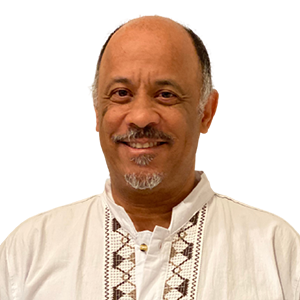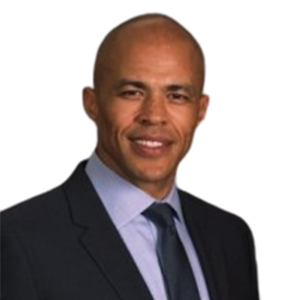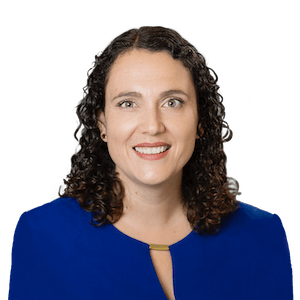CARI Health
Financial Conflict of Interest (FCOI) Policy
January 1, 2021
Introduction
This Financial Conflict of Interest Policy (“Policy”) describes certain legal obligations applicable to Investigators’ disclosure of potential financial conflicts of interest (“FCOI”). The purpose of this policy is to comply with applicable law and to ensure the objectivity of the research conducted by CARI Health (“CARI”), its employees, contractors, and consultants.
Investigators applying for and working on National Institutes of Health (“NIH”), or National Science Foundation (“NSF”) funded research must disclose significant financial interests (“SFI”) that are related to the Investigator’s institutional responsibilities. Investigators are all persons, regardless of title or position, who are responsible for the design, conduct, or reporting of research proposed for funding by the NIH, or NSF (the foregoing agencies, together with any other organizations providing funding through grant or contract to which the regulations contemplated herein apply, collectively, the “Funding Agencies”), including collaborators or consultants. This policy provides the framework to identify, evaluate and correct or remove real, apparent and potential conflicts of interest.
This policy requires that each investigator, subrecipient, subgrantee and collaborator affiliated with CARI on a Funding Agency project be in compliance with 42 CFR Part 50, Subpart F for grants and cooperative agreements. In addition, this legislation spells out NIH’s commitment to preserving the public’s trust that the research supported by them is conducted without bias and with the highest scientific and ethical standards. CARI maintains an up to date, written and enforced administrative process to identify and manage, reduce, or eliminate conflicting financial interests with respect to research projects for which Funding Agency funding is sought. The FCOI regulation covers all financial interests of monetary value, whether the value is readily ascertainable. CARI promotes and enforces Investigator compliance with the regulations. CARI manages FCOI and provides initial and ongoing FCOI reports, and CARI makes FCOI and SFI information available to Funding Agencies, promptly, upon request. Training CARI’s FCOI Policy is distributed to each Investigator annually and includes all Investigator’s disclosure responsibilities, following Federal Regulation 42 CFR 50.604 (b). FCOI training is required for all Investigators
- prior to engaging in research related to any Funding Agency funded grant;
- a minimum of every four years; or
- immediately, if CARI revises its FCOI policy that affects the Investigator requirements, and Investigator is new to CARI, or if an Investigator is not in compliance with the plan.
To complete the training, each Investigator is required to review CARI’s FCOI Policy along with the following information:
– Financial Conflict of Interest Presentation
https://grants.nih.gov/grants/policy/coi/FCOI_NIH_Regional_Seminar-June_22_2012.ppt
– Financial Conflict of Interest Tutorial
https://grants.nih.gov/grants/policy/coi/tutorial2018/story_html5.html
https://grants.nih.gov/grants/policy/coi/fcoi_web-based_tutorial.pdf
– NIH FCOI Resources
https://grants.nih.gov/grants/policy/coi/index.htm
All Investigators at CARI must sign a letter stating that they have reviewed and agree to abide by all FCOI requirements.
Disclosure, Review, and MonitoringInvestigators are required to disclose their SFIs (and those of the Investigator’s spouse and dependent children) that reasonably appear to be related to the Investigator’s institutional responsibilities that meet or exceed the regulatory definition of SFI:
1. no later than at the time of application for Funding Agency funded research;2. within thirty days of discovering or acquiring (e.g., through purchase, marriage, or inheritance) a new SFI; and
3. at least annually during the period of award.
The CEO is currently designated as the institutional official and is responsible for ensuring the proper collection and reporting of all FCOIs according to the above guidelines.
CARI’s definition of SFI is per Federal Regulation 42 CFR 50.603:- A financial interest consisting of one or more of the following interests of the Investigator (and those of the Investigator’s spouse and dependent children) that reasonably appears to be related to the Investigator’s institutional responsibilities:
a. With regard to any publicly traded entity, a SFI exists if the value of any remuneration received from the entity in the twelve months preceding the disclosure and the value of any equity interest in the entity as of the date of disclosure, when aggregated, exceeds $5,000. For purposes of this definition, remuneration includes salary and any payment for services not otherwise identified as salary (e.g., consulting fees, honoraria, paid authorship); equity interest includes any stock, stock option, or other ownership interest, as determined through reference to public prices or other reasonable measures of fair market value;
b. With regard to any non-publicly traded entity, a SFI exists if the value of any remuneration received from the entity in the twelve months preceding the disclosure, when aggregated, exceeds $5,000, or when the Investigator (or the Investigator’s spouse or dependent children) holds any equity interest (e.g., stock, stock option, or other ownership interest); or
c. Intellectual property rights and interests (e.g., patents, copyrights), upon receipt of income related to such rights and interests, when aggregated, exceeds $5,000 .
Investigators also must disclose the occurrence of any reimbursed or sponsored travel (i.e., that which is paid on behalf of the Investigator and not reimbursed to the Investigator so that the exact monetary value may not be readily available), related to their institutional responsibilities; provided, however, that this disclosure requirement does not apply to travel that is reimbursed or sponsored by a federal, state, or local government agency, an Institution of higher education as defined at 20 U.S.C. 1001(a), an academic teaching hospital, a medical center, or a research institute that is affiliated with an Institution of higher education. This disclosure must be made in writing to the designated institutional official within 14 days of travel and include, at a minimum, the purpose of the trip, the identity of the sponsor/organizer, the destination, and the duration. The designated institutional official will determine if further information is needed, including a determination or disclosure of monetary value, to determine whether the travel constitutes an FCOI with the Funding Agency funded research.
The term SFI does not include the following types of financial interests: salary, royalties, or other remuneration paid by CARI to the Investigator if the Investigator is currently employed or otherwise appointed by CARI, including intellectual property rights assigned to CARI and agreements to share in royalties related to such rights; any ownership interest in CARI held by the Investigator, since CARI is a commercial organization; income from investment vehicles, such as mutual funds and retirement accounts, as long as the Investigator does not directly control the investment decisions made in these vehicles; income from seminars, lectures, or teaching engagements sponsored by a federal, state, or local government agency, an Institution of higher education as defined at 20 U.S.C. 1001(a), an academic teaching hospital, a medical center, or a research institute that is affiliated with an Institution of higher education; or income from service on advisory committees or review panels for a federal, state, or local government agency, an Institution of higher education as defined at 20 U.S.C. 1001(a), an academic teaching hospital, a medical center, or a research institute that is affiliated with an Institution of higher education.
Prior to expenditure of funds, the designated institutional official will solicit and review disclosures of SFIs of the Investigator (and those of the Investigator’s spouse and dependent children) related to the Investigator’s institutional responsibilities. The designated institutional official will determine, using the above guidelines, whether an Investigator’s SFI is related to Funding Agency funded research and, if so related, whether the SFI (SFI that could directly and significantly affect the design, conduct, or reporting of the Funding Agency funded research) is an FCOI.
The designated institutional official will develop and implement management plans as needed to manage FCOIs:
for an Investigator who is new to participating in the research project or for an existing Investigator who discloses a new SFI;
- within sixty days of when a SFI is identified that was not disclosed in a timely manner by an Investigator or not previously reviewed by CARI;
- as necessary for any financial conflicts of a sub-recipient Investigator, if applicable.
Investigator compliance with management plans until completion of the project will be monitored.
NIH Reporting
The designated institutional official will send initial, annual, and revised FCOI reports, including all reporting elements required by the regulation, to the NIH for CARI and its subrecipients, if applicable, as required by the regulation:
- prior to the expenditure of funds;
- within 60 days of identification for an Investigator who is newly participating in the project;
- within 60 days for new, or newly identified, FCOIs for existing Investigators;
- at least annually (when CARI is required to submit the annual progress report, multi-year progress report, if applicable, or at time of extension) to provide the status of the FCOI and any changes to the management plan, if applicable, until the completion of the project;
- following a retrospective review to update a previously submitted report, if appropriate.
The designated institutional official will notify NIH promptly if bias is found with the design, conduct or reporting of NIH-funded research including the requirement to submit a Mitigation Report in accordance with and including all reporting elements as required by Federal Regulation 42 CFR 50.605(a)(3)(iii).
The designated institutional official will notify NIH promptly if an Investigator fails to comply with CARI’s FCOI policy or a FCOI management plan appears to have biased the design, conduct, or reporting of the NIH-funded research. CARI will notify NIH promptly and take corrective action for noncompliance with the policy or the management plan.
All FCOI reports will be reported to the NIH through the electronic Research Administration (eRA) Commons FCOI Module.
Maintenance of Records
CARI will maintain all FCOI-related records for at least 3 years from the date the final expenditures report is submitted to the NIH and from any other dates specified in Federal regulation 45 CFR 75.361 where applicable.
Enforcement Mechanisms and Remedies and Noncompliance
Sanctions or other administrative actions to ensure Investigator compliance will be fully implemented depending on the nature and severity of the noncompliance. These sanctions may include anything from a written warning to termination of employment. The designated institutional official will complete and document retrospective reviews within 120 days of CARI’s determination of noncompliance for SFIs not disclosed in a timely manner or previously reviewed or whenever an FCOI is not identified or managed in a timely manner and to document the reviews consistent with the regulation. In any case in which the Funding Agencies determine that a funded research project of clinical research whose purpose is to evaluate the safety or effectiveness of a drug, medical device, or treatment has been designed, conducted, or reported by an Investigator with an FCOI that was not managed or reported by CARI as required by the regulation, CARI shall require the Investigator involved to:
- disclose the FCOI in each public presentation of the results of the research; and
- to request an addendum to previously published presentations.
Subrecipient Requirements
When applicable, a written agreement will be implemented that states the subrecipient will follow CARI’s FCOI policy. If applicable, CARI will obtain a certification from subrecipient(s) that its FCOI policy complies with the regulation. If applicable, this will include a written subrecipient agreement for the subrecipient to report identified FCOIs for its Investigators in a time frame that allows CARI to report identified FCOIs to the Funding Agencies as required by the regulation. Alternatively, if applicable, included in the written agreement will be a requirement to solicit and review subrecipient Investigator disclosures to enable CARI to identify, manage and report identified FCOIs to the Funding Agency.
Public Accessibility
CARI will post it’s FCOI policy on it’s public website www.carihealth.com per Federal Regulation 42 CFR 50.604(a).
Prior to the expenditure of funds, CARI will make publicly accessible information concerning identified FCOI’s held by senior/key personnel. The information will:
- include the minimum elements as provided in Federal Regulation 42 CFR 50.605 (a)(5):
- Investigator’s name;
- Investigator’s title and role with respect to the research project;
- name of the entity in which the SFI is held;
- nature of the SFI; and
- approximate dollar value of the SFI (dollar ranges are permissible: $0 – $4,999; $5,000 – $9,999; $10,000 – $19,999; amounts between $20,000 – $100,000 by increments of $20,000; amounts above $100,000 by increments of $50,000) or a statement that the interest is one whose value cannot be readily determined through reference to public prices or other reasonable measures of fair market value.
- be posted on carihealth.com or made available within 5 calendar days of a written request;
- be updated, at minimum annually;
- be updated, within 60 days of a newly identified FCOI;
- remain available for three years from the date the information was most recently updated.















